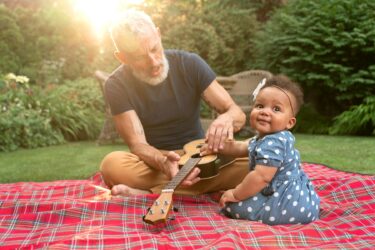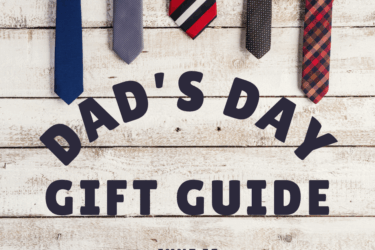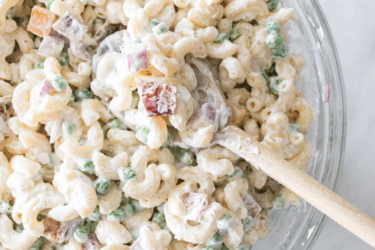Today’s educational choices go way beyond the little red schoolhouse. Parents need to know the differences in order to choose what’s best for their kids.
 When the time came for Jane Oliver to think about enrolling her son Peter into kindergarten, she first thought only of the public school around the corner from her church.
When the time came for Jane Oliver to think about enrolling her son Peter into kindergarten, she first thought only of the public school around the corner from her church.
But when she went for a visit in the spring before the fall of his kindergarten year, she quickly realized that her son – a quiet, even passive child – could easily get lost among the many, more gregarious children in the classroom of 28 children. Her insticts led her to explore other options, but when she started her search she became overwhelmed by the choices.
“Suddenly there was too much to think about,” she says, “too much to learn. Some of the educational methods I started researching sounded weird, but others sounded interesting. I realized I needed to know more than I did about what I might be able to offer Pete educationally.”
There are a wide variety of educational alternatives available to children today, and the selections can be confusing if you aren’t in-the-know. While mainstream public schools still dominate education in the United States, other alternatives may more specifically reflect the full philosophical, religious and political diversity of the nation, according to Ronald E. Koetzsch, Ph.D., author of The Parents’ Guide to Alternatives in Education, (Shambhala Publications, Inc.). The instructional method that is the best for one child may not be the best for another. Here’s a look at just a few of the many options available.
Public versus private
Public schools are controlled and operated by publicly elected or appointed officials and derive their support from public funds. The U.S. public school system is enormous, with close to 90,000 schools nationwide providing free education to its students. Classes consist of between 20 to 30 children of roughly the same age.
The teacher does most of the talking in the classroom, presenting and explaining material, asking questions and soliciting answers. In some subjects, children are grouped according to ability. The emphasis is on acquiring basic academic skills, such as reading, writing and arithmetic and on mastering the content in various subjects such as social studies, English and science.
Many local school districts offer a number of options to students in addition to their zoned or assigned schools. Metropolitan Nashville Public Schools offer options including 15 magnets (with emphasis on a particular subject such as literature), seven enhanced option schools (which have smaller classes and a school year 20 days longer) and six design centers (built around a special theme, such as advanced academics or health and medical sciences).
It is necessary to apply for your child to attend one of these optional programs. A lottery for entry grades is used to select students who have applied. Students eligible for grades above the entry level of the schools are assigned to waiting lists.
Williamson County has Williamson County Schools, a K – 12 district served by 32 schools and Franklin Special School District, a K – 8 district served by seven schools.
Rutherford County has Rutherford County Schools, a K – 12 district served by 30 schools and Murfreesboro City Schools, a K – 6 district served by 10 schools.
All of Tennessee’s school report cards are posted on the Tennessee Department of Education’s website located at www.state.tn.us/education. Click on reports.
This fall, Nashville’s first charter school, Smithson-Craighead Academy opened for students from Nashville’s three lowest performing schools in the district. The fact that a charter school has opened in Middle Tennessee at all is testament to how educational choices here have broadened. To learn more about charter schools, visit
www.usacharterschools.org or www.tncharters.org.
Parents who are not satisfied with public schools for various reasons may choose to pay for their children’s education at a privately-owned, independent school ranging from Roman Catholic to Lutheran parochial to Montessori or Waldorf. To learn more about area private schools pick up a 2003 Private School and Enrichment Directory published by Day Communications, Inc. or visit the website for the Tennessee Association of Independent Schools (TAIS) at www.taistn.org.
“Independent schools are independent because they each have distinct mission statements and they are supported by tuition payments, charitable contributions and endowment revenue,” says Emily B. Fuller, executive director of TAIS. “Because each independent school is unique, parents can select the learning environment that will best support their child. Independent schools are characterized by individualized attention from professional and caring teachers and actively engaged parents within a close-knit community.”
Montessori Schools
“Montessori” is an educational philosophy introduced early in the 20th century by Maria Montessori, Italy’s first female physician. It is based on the fundamental principle that children learn best within an environment that supports each individual’s unique development.
Montessori classes bring children together in multi-age groups, rather than classes comprised of just one grade level. Normally they span three age levels. Children stay with the same teacher for three years. Montessori schools have many similarities, yet each is different. It’s best to visit each school to decide which is the best fit for your family.
“Montessori is a philosophy that is child-directed,” says Sherry Knott, executive director of Abintra Montessori School in Nashville. “We call our teachers ‘guides.’ It’s the role of the guide to observe the child’s development and then provide the curriculum appropriate to that individual child. The curriculum spans three years.
Approximately 35 million students attend public schools. The parents of about one million children choose homeschooling, while the parents of another 4 million children choose private school.
“We find out what a child loves and what he or she is good at,” Knott says. “We integrate foreign language, arts, community service learning and outdoor education into our academic curriculum.”
Reading and writing apply across the board, while subjects such as social studies, science and literature drive the classroom. When the student has mastered the work that’s available they are ready to move on.
“Our focus is on how the child is learning not how the teacher is teaching,” says Knott.
Waldorf Education
Founded in 1919 by Dr. Rudolf Steiner, the renowned Austrian educator, philosopher, scientist and artist, the pedagogy of Waldorf education is based on Steiner’s insights into the human being and the nature of the developing child. There are more than 800 schools and an additional 600 nursery/kindergartens in 35 countries. Nashville’s Linden Corner School is Tennessee’s only Waldorf school.
“We are dedicated to the understanding that children are unique individuals who pass through distinct developmental stages,” says Wade Wisdom, a parent and Linden Corner marketing coordinator. “Learning at Linden Corner involves not only the intellect, but also the child’s imagination, feelings and need for self-discipline.”
The class teacher is responsible for teaching the main lesson and sometimes other specialty subjects.
Art, instrumental music, song, stories and crafts are integrated into the curriculum. Specialty subjects, starting in first grade, include two foreign languages, music, art, handwork (e.g. knitting, crocheting, woodworking, sewing), and physical education.
“Such an integrated and extensive course of study provides the children with a comprehensive foundation for a love of learning and creative expression,” Wisdom says.
Paideia Schools
Paideia (pie-day-uh) schools offer a unique approach to active learning. The Paideia classroom combines three instructional techniques: didactic instruction of factual information, intellectual coaching of academic skills and Paideia seminar discussion of ideas, concepts and values. While the didactic and seminar techniques make up about 40 percent of the class time, the other 60 percent of the day is focused on intellectual coaching, or guidance through modeling and questioning.
The school stresses the same integrated core curriculum for all students, including fine arts, music, foreign language, and the manual arts, giving students the opportunity to explore these areas as they relate to the core academic subjects. There are three schools in the area that offer the Paideia approach to education – John Early Middle School, Jones Elementary School and Sylvan Park Elementary, all public schools in Nashville.
“This is outstanding teaching,” says Evalina Cheadle, principal of Sylvan Park. “With the seminar technique, students are divided into groups and are given a question. They must come up with a unified answer and justify why they are giving that answer. I’ve observed students who become so confident with this way of learning. It makes them think, and they become aware of each other and are better able to understand each other.”
Homeschooling
Home education is a tutorial method of education in which one or both parents assume the entire responsibility for schooling their children.
“Research shows that home-educated children perform at a 75 – 90 percent average on nationally recognized achievement tests,” says Bonnie Hoskin, office manager for the Middle Tennessee Home Education Association and a homeschool parent for the past 12 years. “In the home the quality of learning is held constant until mastered, and the lesson time varies as needed from child to child. Also, the home educator can specifically design a program of study that will meet the needs of each child and allow for individual strengths and weaknesses.”
Hoskins says one of the fears parents tend to have is that their child will not be around peers.
“Home-educated children typically get plenty of social interaction through their family, church, neighborhood and friends,” she says.
“We’re involved with a tutorial co-op, where a group of homeschool families hire a teacher to teach one day a week, serving as a tutor of sorts. There is a church in Hermitage that allows us to use their classrooms every Monday. The teacher works with the older kids and we have regular class with the younger children. Then the rest of the week we focus on that week’s topics at home.”
In Tennessee, parents who wish to homeschool must register with the local superintendent of public schools. The teaching parent must have a high school diploma or general education degree (GED), and students must be tested when public school students are tested in grades five, seven and nine. Parents may also register with a church-related school that offers services to home schoolers. You must meet the requirements of that particular school and have your child tested whenever they test their students.
Cristin Mammarelli is a mother, writer and resident of Bellevue.
MIDDLE TENNESSEE’S EDUCATIONAL OPTIONS
* Homeschooling*
Middle Tennessee Home
Educators Association
www.mthea.org
Find information on
curriculum, FAQs, support, links and more.
Tennessee Home Education Association
www.tnhea.org
Information on Tennessee
legislation impacting
homeschoolers as well as
organizations and more.
*Montessori*
Abintra Montessori
Nashville, 352-4317
www.abintra.org
Grades: Toddlers – 9th
Casa de Montessori
Nashville, 352-2131
Ages: 2-and-a-half – 5 yrs.
Children First,
A Montessori Community
Nashville, 292-8151
Ages 6 weeks – 6 yrs.
The Children’s House Montessori School
Nashville, 298-5647
Ages 3 – 6 and kindergarten
Honeysuckle
Montessori School
Hendersonville, 264-1235
Ages 2-and-a-half – K
Hull-Jackson
Montessori School
(Public)
Nashville, 291-6601
Ages 3 – 9
Margaret Allen Montessori Middle School
(Public)
Nashville, 291-6385
Ages 5 – 8
Montesssori Academy
Brentwood, 833-3610
Ages 3 – high school
Montessori Centre
Nashville, 373-0897
Ages 2 mos. – K
Montessori School of Franklin
794-0567
Ages 30 mos. – 3rd grade
Murfreesboro
Montessori School
893-0031
Ages 30 mos. – 6 yrs.
Portland Montessori Academy
323-1065
Ages 3 – 5 and grades K – 6
Standford Montessori
(Public)
Nashville, 893-0031
Ages 3 – 9
*Paideia*
John Early Middle Paideia
(Public)
Nashville, 291-6369
Grades 5 – 8
Jones Paideia
(Public)
Nashville, 291-6382
Grades K – 4
Sylvan Park Paideia
(Public)
Nashville, 298-8423
Grades K – 4
*Private Schools*
2003 Private School and
Enrichment Directory
256-2158
to request a copy
Tennessee Association of
Independent Schools
321-2800
Provides information on
member schools.
www.tais.org
*Public Schools*
Franklin Special School Distict (FSSD)
794-6624/www.fssd.org
Metropolitan Nashville Public
259-8400/www.mnps.org
Aside from typical public schools which children are zoned for automatically epending upon where they live, Metropolitan Nashville offers 15 magnet schools, seven enhanced option schools and six design centers all filled by lottery. For an application for the 2004 lottery, call 259-8676.
Murfreesboro City Schools
893-2313
mufreesboro.cityschools.net
Rutherford County Schools
893-5812/www.rcs.k12.tn.us
Williamson County Schools
472-4000/www.wcs.edu
*Waldorf*
Linden Corner School
Nashville, 354-0270
www.lindencorner.org
Grades: PreK – 6




